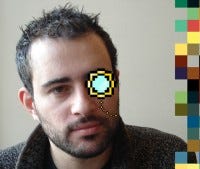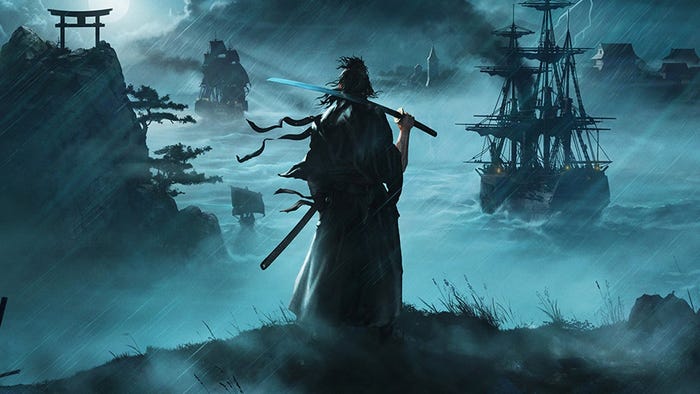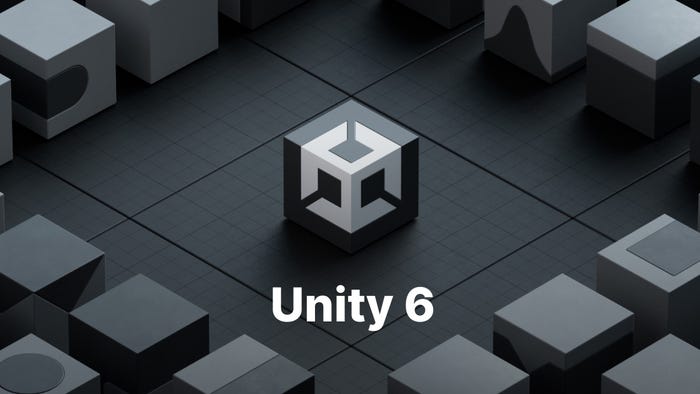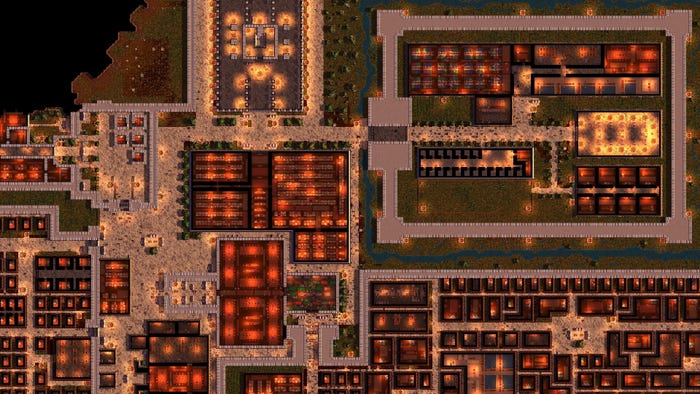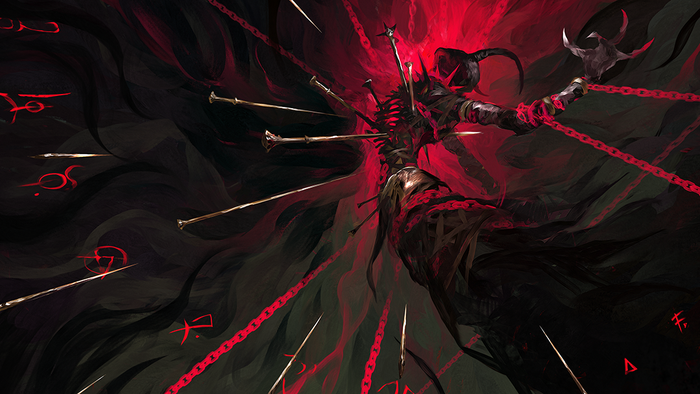The art of visual novels: One writer's approach to interactive fiction
Christine Love originally impressed the masses with visual novel Digital: A Love Story and, in only a few years, has moved on to become a key figure in the space. Here, she discusses how she designs the stories and the games that engulf them.

[Gamasutra sister site IndieGames.com recently spoke to independent developer Christine Love to learn more about her visual novels such as Digital: A Love Story, and how she approaches storytelling in an interactive medium.] Christine Love originally impressed the masses with the visual novel Digital: A Love Story, and in only a few years, she has moved on to become a key figure among those writing interactive fiction. Now, her portfolio also includes titles such as Don't Take It Personally, Babe, It Just Ain't Your Story, and Analogue: A Hate Story, all of which portray complex, personal narratives within a digital framework. She is one of the few developers who can command words to do her bidding in a video game format. Here, she discusses how she designs the stories and the games that engulf them. Why did you decide to utilize your writing skills in the video game space? Honestly, I'm still trying to catch up to the idea that making video games is what I do! I always thought that I'd just end up being a novelist. Then everyone told me that Digital: A Love Story was a game, just because it had interactive elements... so I've sort of embraced that. But I mean, video games are probably the most interesting storytelling medium to exist, so I'm really happy to be working with them. Could you briefly introduce yourself for those who are not so familiar with your games? I make games with lots of words in them. Generally, they tend to be about our relationship with technology, about human relationships in general, and about seeing things from different perspectives. Digital and Analogue are both set inside computers, casting the player as the protagonist and showing you exactly what they'd see, as you solve a mystery by hacking and by reading through other peoples' messages. Don't take it personally, babe is similarly set on a social network of the future, where you get to monitor the private social networking posts of a class of high school students. So my games usually have a love story (or three), usually have a lot of different character voices... and usually have a ton of words. How would you describe your design process? Is it more or less the same for each of your games? I've sort of refined it as I go along. For Digital, I sort of just flew by the seat of my pants without any sort of planning, and it shows: it's really very confusing, and hard to figure out how to trigger the next story event to move the plot forward. That's because all that was just done on the spot, and it ended up being haphazard. Don't take it personally, babe was very linear, but I learned my lesson for Analogue: it had lots of flow charts prepared before I started putting in any sort of game logic, with a three act structure laid out and everything. As a result, it's infinitely more intuitive to play through. Plus, as my first commercial game, I collaborated with both a musician and an artist, and I dedicated a lot more time to testing than I did for those first two, which were just one-month projects. Past that, though, the process has largely been the same. First I'll have an idea, then I'll mock up what I think it'll look like, then render that in code. So the first thing is to get as much as possible of the game interface finished, at the same time I do all the plotting; but the bulk of the time is spent just straight up doing a lot of writing.  And would I be correct in considering Digital: A Love Story, Don't take it personally and Analogue: A Hate Story a trilogy of sorts? All three games, despite their radically different settings feel strangely connected. Of sorts. Aside from some small continuity nods, and an easter egg in Don't take it personally, babe, there aren't really any direct connections -- unsurprising since the first takes place in 1988, the second in 2027, and the third a thousand years into the future -- but they're certainly spiritually connected. Analogue, really, despite the radically different setting and subject matter, is definitely a sequel to Digital; they have very similar mechanics, just with Analogue's being a little deeper when it comes to hacking, a little more comprehensible when it comes to reading through messages, and a branching narrative. Where do you find inspiration? Oh god, lots of places. I'll say this: both Digital and Analogue were very research-heavy projects, and cover periods of history that I find to be incredibly personally interesting. I don't know if I'd really call the plights of mid-Joseon dynasty women to be inspiring in most senses of the world, but it certainly did make me want to try to understand what life was like for them. What sort of goals did you set for yourself when creating Digital: A Love Story? I had a story I wanted to tell, and a month to get it done. There were a few design goals I adhered to along the way -- have a super-immersive presentation, make the protagonist's gender irrelevant -- but that's the long and short of it, really. Analogue: A Hate Story was your first commercial game -- What made you decide to, well, go professional? Did you find you had to restrict yourself in order to approach a wider audience? It got to the point where I got so many emails from people telling me to sell a game so they could give me money, I decided to take them seriously! Let me put it this way: Analogue: A Hate Story is a visual novel that revolves around marriage in a particular period of Korean history. I'm honestly not sure if it's possible to make a game that's any less commercially safe than that. We all decided early on that we'd tell the story we wanted to, in the way we wanted, and just hope that people were more interested in sincerity than commercially safe pandering. I'm not really surprised we were proven right. Some mainstream critics don't really get the appeal -- which is understandable really, as Analogue is certainly a really weird game -- but the ones that do seem to think very highly of it. Most people who have played it seem to like it, and internet misogynists seem to despise it. I feel pretty happy about all that! Do you really feel gamers (or at least a substantial percentage of gamers) can put up with text in their games long enough to fully appreciate the wonderful things text can do? Evidently so! Not that I think text is what's wonderful about telling a story in a game, or even crucial to it; it's just easier is all. Your games are the rare kind of games that I like to describe as being connected to actual reality. They have something to tell about society and our non-idealized selves. Is this a conscious choice? Honestly, I'm not even sure I agree. My games tend to be sincere, sure, but I wouldn't confuse that for being about "non-idealized selves." They also tend to be very dramatic, and to be very romantic. I mean, Digital is a game where you save the world via hacking, and Analogue is a game where a survivor of horrific trauma falls in love with the first person she meets! I think it's wrong to suggest that fiction can't be meaningful because parts of it aren't realistic, but realism is not a goal I aspire to -- sincerity and accuracy, sure, but not realism. Do you still find the time to play games? Lately I've been having a hell of a time finding games that actually hold my interest for the hours and hours that they last. I'm not particularly busy anymore, but I've also been hit by my depression a lot lately, which just renders me completely incapable of caring about any games. It's kind of a frustrating experience. That said, I did play through Mass Effect 3 anyway (spoilers: I cried a lot), and recently finished Driver San Francisco, which I thought was probably the most narratively clever game I've ever played. I've got a giant list of games from the past year or two that I've been meaning to work through, but work and depression got in the way of, so I'm pretty excited to keep whittling that down. I get the impression there's been a lot of great stuff put out recently. As far as developers I admire go... I don't want to really just rattle off a list of my favourites or anything, because it will invariably fail to mention a ton of people. But Anna Anthropy is absolutely the reason why I got into game-making. Most of her games haven't been my cup of tea, and we have very different approaches; but I still definitely admire the hell out of her. Finally, could you give us some insight as to what the future holds? I feel like every single time I answer this question in an interview, I jinx it. Like, I honestly don't think I've ever mentioned a project as "what I'm doing in the future" that ever actually ended up being made! So I'm going to say nothing here, but suffice to say, I would not expect what I'm doing in the future to be anything like what I've done up until now.
And would I be correct in considering Digital: A Love Story, Don't take it personally and Analogue: A Hate Story a trilogy of sorts? All three games, despite their radically different settings feel strangely connected. Of sorts. Aside from some small continuity nods, and an easter egg in Don't take it personally, babe, there aren't really any direct connections -- unsurprising since the first takes place in 1988, the second in 2027, and the third a thousand years into the future -- but they're certainly spiritually connected. Analogue, really, despite the radically different setting and subject matter, is definitely a sequel to Digital; they have very similar mechanics, just with Analogue's being a little deeper when it comes to hacking, a little more comprehensible when it comes to reading through messages, and a branching narrative. Where do you find inspiration? Oh god, lots of places. I'll say this: both Digital and Analogue were very research-heavy projects, and cover periods of history that I find to be incredibly personally interesting. I don't know if I'd really call the plights of mid-Joseon dynasty women to be inspiring in most senses of the world, but it certainly did make me want to try to understand what life was like for them. What sort of goals did you set for yourself when creating Digital: A Love Story? I had a story I wanted to tell, and a month to get it done. There were a few design goals I adhered to along the way -- have a super-immersive presentation, make the protagonist's gender irrelevant -- but that's the long and short of it, really. Analogue: A Hate Story was your first commercial game -- What made you decide to, well, go professional? Did you find you had to restrict yourself in order to approach a wider audience? It got to the point where I got so many emails from people telling me to sell a game so they could give me money, I decided to take them seriously! Let me put it this way: Analogue: A Hate Story is a visual novel that revolves around marriage in a particular period of Korean history. I'm honestly not sure if it's possible to make a game that's any less commercially safe than that. We all decided early on that we'd tell the story we wanted to, in the way we wanted, and just hope that people were more interested in sincerity than commercially safe pandering. I'm not really surprised we were proven right. Some mainstream critics don't really get the appeal -- which is understandable really, as Analogue is certainly a really weird game -- but the ones that do seem to think very highly of it. Most people who have played it seem to like it, and internet misogynists seem to despise it. I feel pretty happy about all that! Do you really feel gamers (or at least a substantial percentage of gamers) can put up with text in their games long enough to fully appreciate the wonderful things text can do? Evidently so! Not that I think text is what's wonderful about telling a story in a game, or even crucial to it; it's just easier is all. Your games are the rare kind of games that I like to describe as being connected to actual reality. They have something to tell about society and our non-idealized selves. Is this a conscious choice? Honestly, I'm not even sure I agree. My games tend to be sincere, sure, but I wouldn't confuse that for being about "non-idealized selves." They also tend to be very dramatic, and to be very romantic. I mean, Digital is a game where you save the world via hacking, and Analogue is a game where a survivor of horrific trauma falls in love with the first person she meets! I think it's wrong to suggest that fiction can't be meaningful because parts of it aren't realistic, but realism is not a goal I aspire to -- sincerity and accuracy, sure, but not realism. Do you still find the time to play games? Lately I've been having a hell of a time finding games that actually hold my interest for the hours and hours that they last. I'm not particularly busy anymore, but I've also been hit by my depression a lot lately, which just renders me completely incapable of caring about any games. It's kind of a frustrating experience. That said, I did play through Mass Effect 3 anyway (spoilers: I cried a lot), and recently finished Driver San Francisco, which I thought was probably the most narratively clever game I've ever played. I've got a giant list of games from the past year or two that I've been meaning to work through, but work and depression got in the way of, so I'm pretty excited to keep whittling that down. I get the impression there's been a lot of great stuff put out recently. As far as developers I admire go... I don't want to really just rattle off a list of my favourites or anything, because it will invariably fail to mention a ton of people. But Anna Anthropy is absolutely the reason why I got into game-making. Most of her games haven't been my cup of tea, and we have very different approaches; but I still definitely admire the hell out of her. Finally, could you give us some insight as to what the future holds? I feel like every single time I answer this question in an interview, I jinx it. Like, I honestly don't think I've ever mentioned a project as "what I'm doing in the future" that ever actually ended up being made! So I'm going to say nothing here, but suffice to say, I would not expect what I'm doing in the future to be anything like what I've done up until now.
About the Author(s)
You May Also Like

